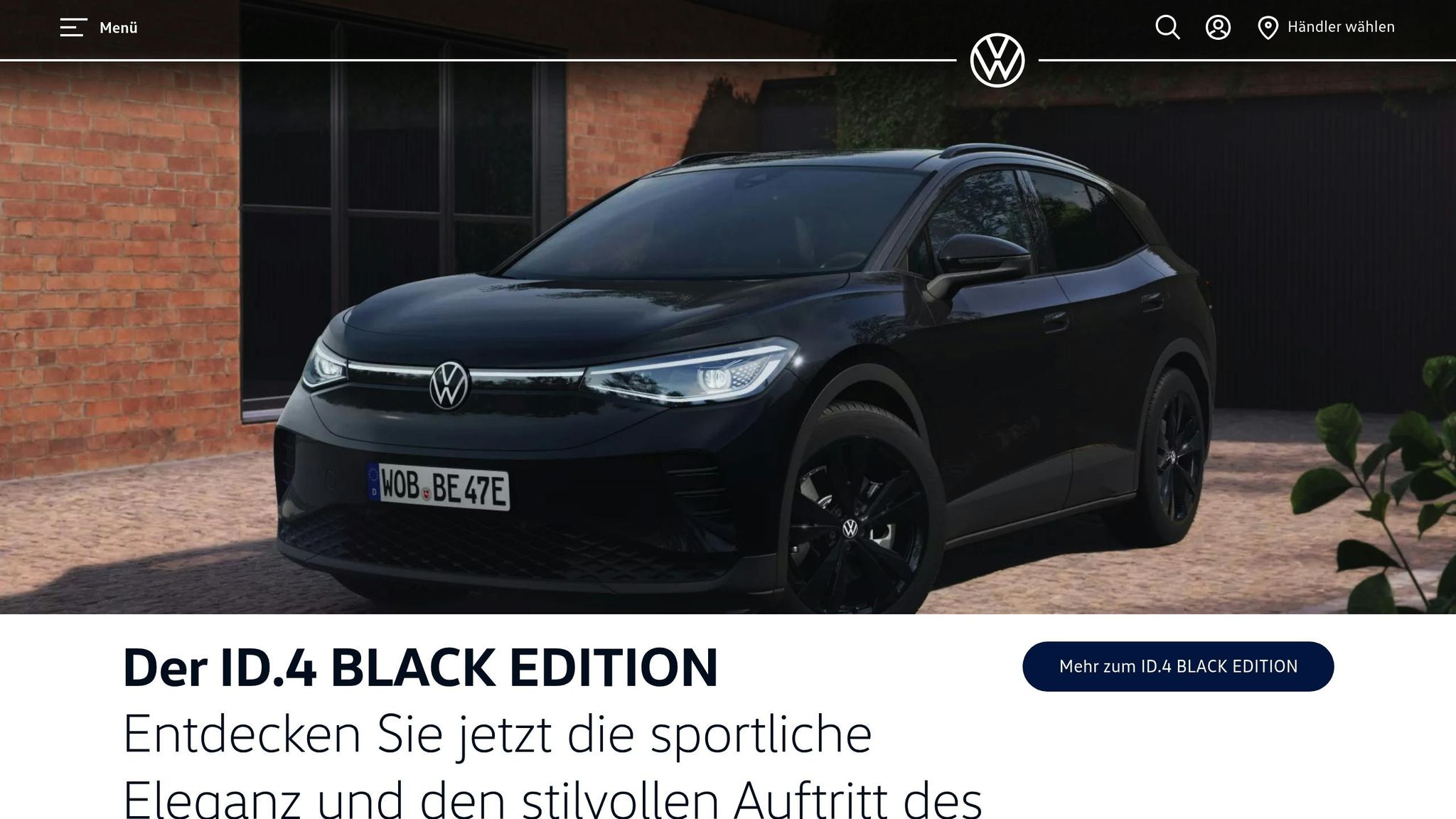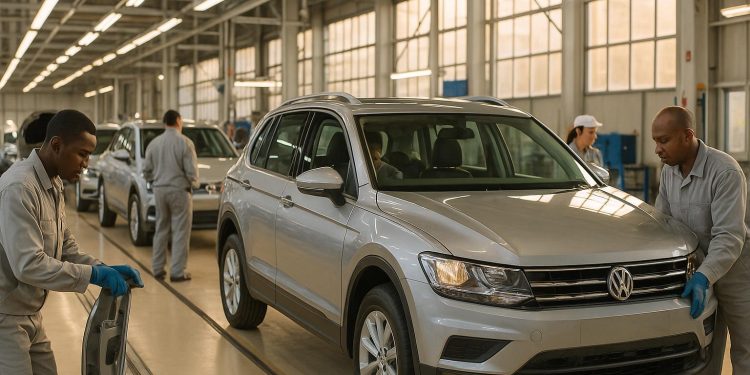Volkswagen’s new assembly plant in Kenya marks a shift in Africa’s auto industry. By focusing on local production, VW aims to serve East African markets more efficiently. This move challenges South Africa’s long-standing dominance in vehicle manufacturing on the continent.
Key points:
- Kenya’s Role: Positioned as an East African hub, Kenya will assemble VW models for local and regional markets.
- Impact on South Africa: South African exports may face reduced demand in East Africa, and local suppliers could lose business if Kenya sources parts regionally.
- Trade Dynamics: Agreements like the African Continental Free Trade Area make regional competition fiercer, but South Africa’s established infrastructure and access to key materials (e.g., for EV batteries) remain strengths.
Volkswagen’s strategy reflects Africa’s growing focus on local manufacturing. While South Africa faces challenges, the broader growth in Africa’s auto sector could offer opportunities for collaboration and specialization.
Volkswagen to start assembling cars in Kenya

1. Volkswagen’s Kenyan Expansion
Volkswagen’s decision to expand into Kenya marks a notable move in its African strategy. By opening a plant in Nairobi, the company aims to address local demand while tapping into the broader East African market.
Below, we break down the potential effects of this expansion in terms of market opportunities, manufacturing prospects, and regional trade dynamics.
Market Impact
Kenya’s position as an economic hub in East Africa makes it a prime choice for Volkswagen’s growth plans. With its strategic location, the country offers access to a steadily growing customer base. This move could disrupt the dominance of South African manufacturers, as increased local production in Kenya has the potential to alter market trends and shift competitive advantages within the region.
Manufacturing Opportunities
The Nairobi facility is set to focus on blending Volkswagen’s global supply chain with locally sourced components. This strategy not only supports local value addition but also has the potential to spur the growth of related industries in Kenya. Additionally, the initiative could facilitate technology transfer and workforce training, helping to enhance skills and drive economic development in the area.
Regional Trade and Competition
By producing vehicles locally, Volkswagen can take advantage of trade agreements like the African Continental Free Trade Area, which simplifies access to neighboring markets. This localized production model could lead to more competitive pricing compared to imported vehicles. As a result, the move may shift regional production dynamics, posing a challenge to South Africa’s long-standing leadership in automotive manufacturing across the continent.
2. South Africa’s Automotive Industry
With Volkswagen’s new facility in Kenya grabbing attention, South Africa’s automotive sector – long considered the continent’s leader – finds itself navigating fresh competition. Known for its well-established manufacturing capabilities, South Africa has been a hub for major global automotive brands for decades.
Market Impact
South Africa boasts a diverse consumer base, supporting everything from affordable cars to luxury models. However, Kenya’s localized production could shift some East African demand away from South African exports, presenting a potential challenge for the industry.
Manufacturing Opportunities
South Africa’s advanced manufacturing infrastructure, paired with government-backed production incentives, gives it a competitive edge. The country’s mining sector, crucial for sourcing materials like those used in batteries, positions it well for the electric vehicle market. However, local component suppliers may feel the pinch if regional players, such as Kenya, begin sourcing parts closer to their own facilities.
Regional Trade and Competition
Trade agreements like AGOA have historically supported South Africa’s export strength. But with the African Continental Free Trade Area making it easier for countries like Kenya to tap into regional markets, competition is heating up. On the bright side, South Africa’s access to key battery minerals could secure its place in the growing electric vehicle landscape.
sbb-itb-09752ea
Pros and Cons
Volkswagen’s expansion into Kenya brings a mix of opportunities and challenges for South Africa’s automotive industry. On the one hand, regional collaboration could strengthen ties and create shared benefits. On the other, Kenya’s growing automotive capabilities pose direct competition, reshaping the dynamics of the market.
A key concern is market displacement. Volkswagen Group South Africa (VWSA) has positioned Kenya as its hub for East Africa, which could mean a shift in investments away from South Africa. Additionally, Volkswagen’s partnership with Kenya Vehicle Manufacturers (KVM) aims to ramp up production and introduce five new passenger vehicle models for the East African market. This move not only boosts local supply in Kenya but also creates competition for South African exports.
| Benefits for South Africa | Challenges for South Africa |
|---|---|
| Strengthened Regional Influence: South Africa’s role in the regional automotive market could grow through collaboration. | Decline in Export Demand: East African buyers may prefer locally produced vehicles over South African imports. |
| Shift in Investments: Kenya’s focus as a regional hub could divert funding from South African facilities. | |
| Parts Competition: Increased localization in Kenya might reduce demand for South African-made automotive components. | |
| Government Support in Kenya: A pledge to purchase 300 locally assembled Volkswagen vehicles annually may limit market access for South African exports. |
Kenya’s push for localized production could further reduce South Africa’s auto parts exports, creating additional challenges.
"Although the African automotive market is comparatively small today, the sub-Saharan region has the potential to become an automotive growth market of the future." – Volkswagen
This outlook highlights a dual reality: while South Africa faces immediate hurdles, the broader development of Africa’s automotive sector could unlock new possibilities. With its established infrastructure and expertise, South Africa is well-positioned to tap into this growth, even as competition from Kenya and other emerging players intensifies.
The rapid rise of East Africa’s automotive sector, driven by government incentives, underscores the need for South Africa to adapt quickly. Staying competitive in this shifting landscape will require strategic adjustments and innovation.
Conclusion
Volkswagen’s decision to expand into Kenya marks a notable shift in Africa’s automotive industry, one that South Africa cannot afford to overlook. This move highlights the growing role of emerging markets as manufacturing hubs, rather than just destinations for exports. For South Africa, this shift brings both challenges and chances for growth, requiring the industry to adapt to evolving dynamics.
A critical aspect of this change is the potential realignment of regional market influence. As Kenya bolsters its position as an East African hub with increased local production, South Africa must rely on its well-established infrastructure and decades of expertise to remain competitive. There’s also a clear opportunity for collaboration between the two markets, fostering mutual growth.
South Africa’s automotive sector can stay ahead by focusing on areas like high-value components, specialized manufacturing, and advanced technology integration. By capitalizing on its mature industrial base, South African companies can not only safeguard their market position but also build strategic partnerships that align with the shifting landscape of Africa’s automotive market.
FAQs
What impact could Volkswagen’s expansion in Kenya have on Africa’s automotive market and South Africa specifically?
Volkswagen’s plan to grow its operations in Kenya is poised to shake up Africa’s automotive scene. By ramping up local production, the company aims to make vehicles more accessible while drawing investments into the region. This move could turn Kenya into a manufacturing powerhouse in East Africa, sparking job creation and fueling economic growth.
For South Africa, the ripple effects are twofold. On one hand, the increased competition might challenge local manufacturers to step up their game with better innovation and efficiency. On the other hand, closer regional trade connections could open doors for South African suppliers and exporters, creating fresh opportunities for partnerships across the continent. This shift highlights Africa’s rising role in the global automotive industry.
How could Volkswagen’s new assembly plant in Kenya impact local industries and workforce development?
Volkswagen’s decision to set up a new assembly plant in Kenya has the potential to boost local industries significantly. By reinforcing supply chains and spurring the growth of related manufacturing sectors, this move could open up fresh opportunities for businesses to collaborate with and support the automotive industry, ultimately driving economic growth in the region.
On top of that, the plant is expected to create jobs and enhance workforce skills through training programs and the transfer of technology. By bringing advanced manufacturing techniques into the mix, it could equip the local workforce with expertise that benefits both the economy and the industrial landscape in the long run.
What steps can South Africa take to stay competitive as Kenya’s automotive industry grows?
South Africa has the chance to stay ahead by boosting local manufacturing and building strategic partnerships for assembly operations. These steps can significantly improve production capabilities. Additionally, taking advantage of regional trade agreements like the African Continental Free Trade Area (AfCFTA) can unlock access to broader markets and create fresh opportunities for growth.
Another key area is investing in sustainable technologies. This includes electric vehicles and eco-friendly transport infrastructure – both of which align with changing consumer preferences. By prioritizing innovation, top-notch quality, and regional cooperation, South Africa can hold its position as a leader in the automotive industry while navigating the challenges brought on by Kenya’s growing presence in the sector.
Related posts
- Export Tax Incentives: Boosting SA Auto Exports
- How Toyota Tailors Cars for South Africa
- Toyota vs VW: South Africa’s Auto Giants Face Off
- Kenya’s EV charging rollout inspires South African planners





